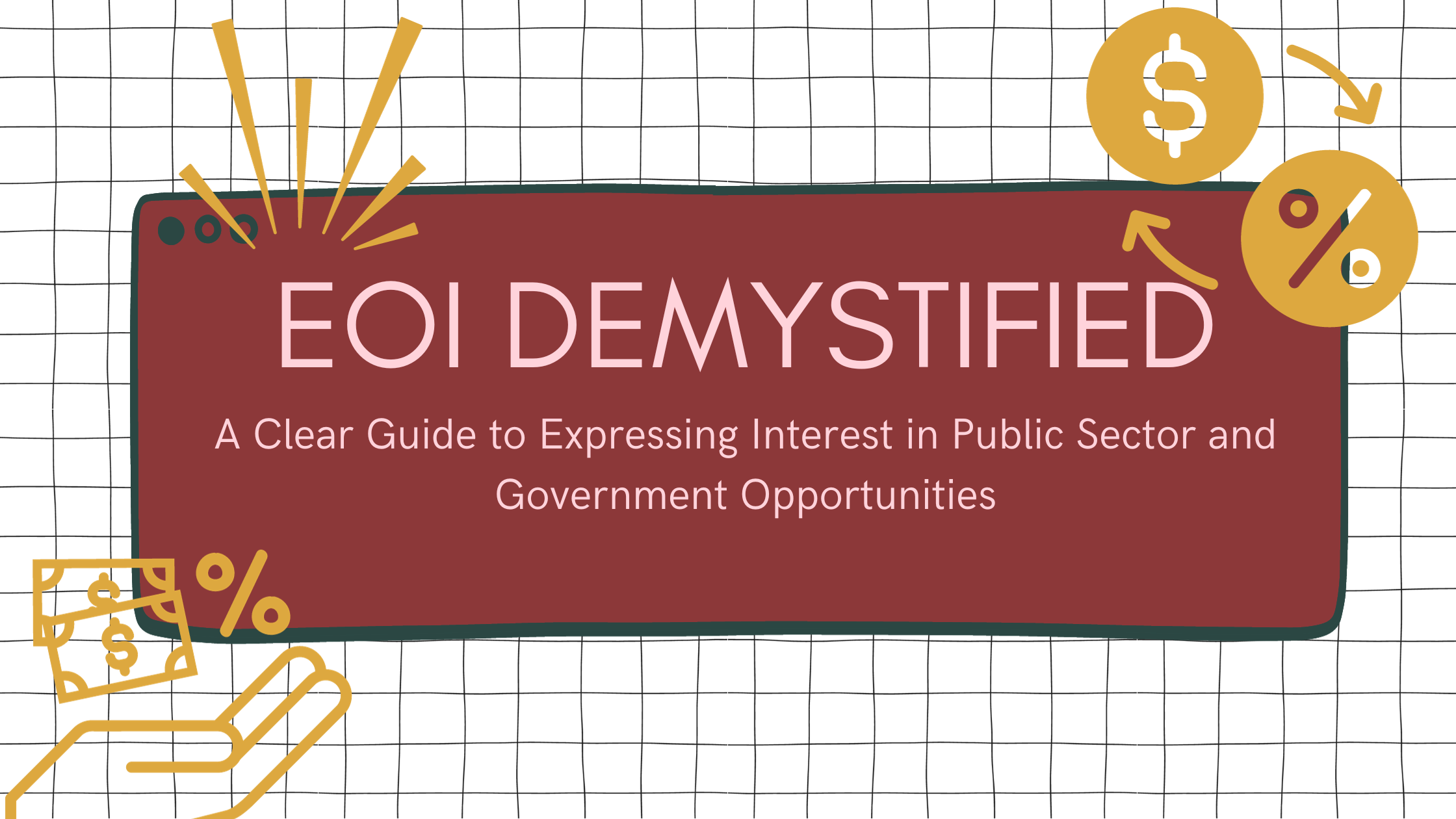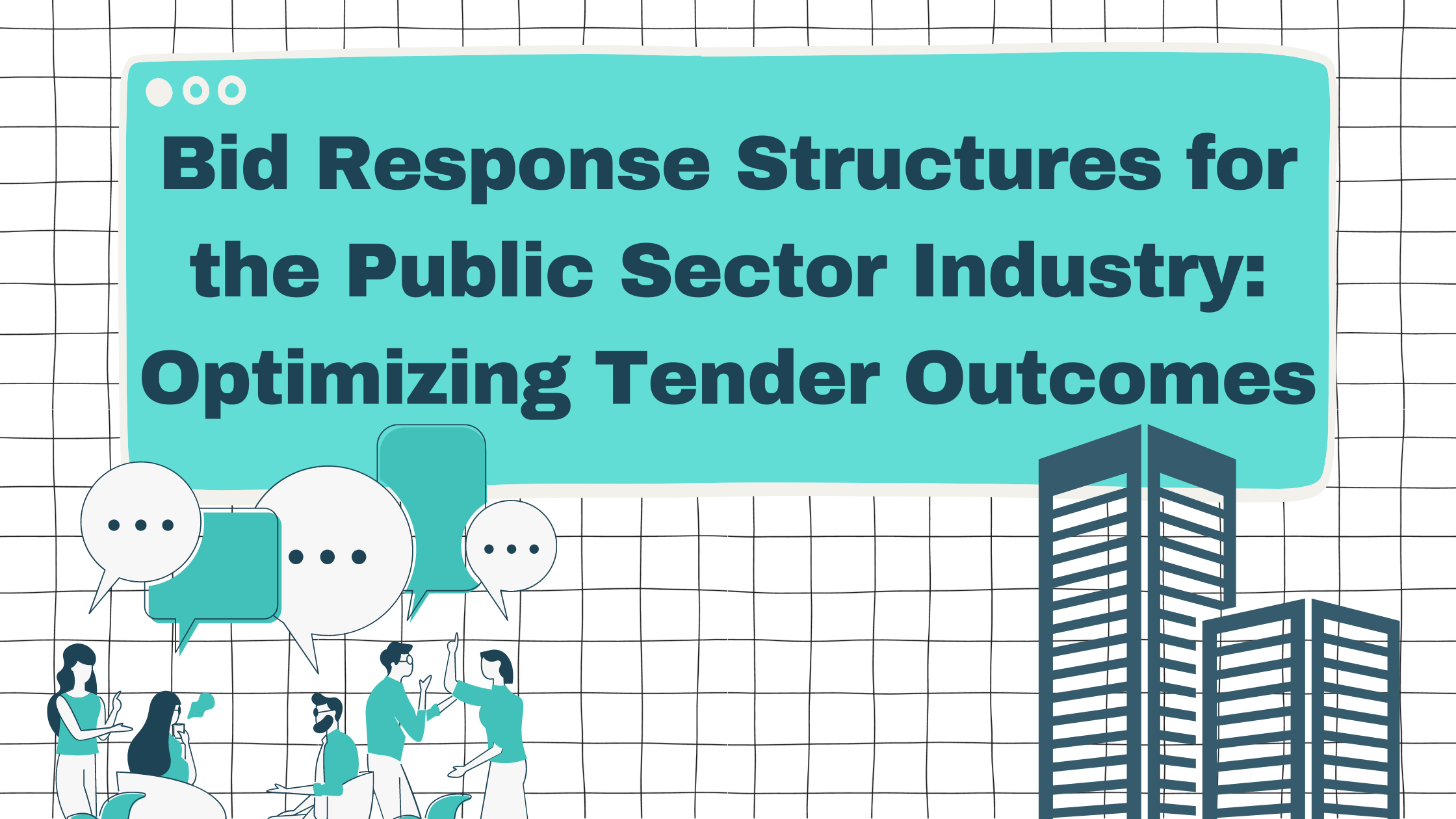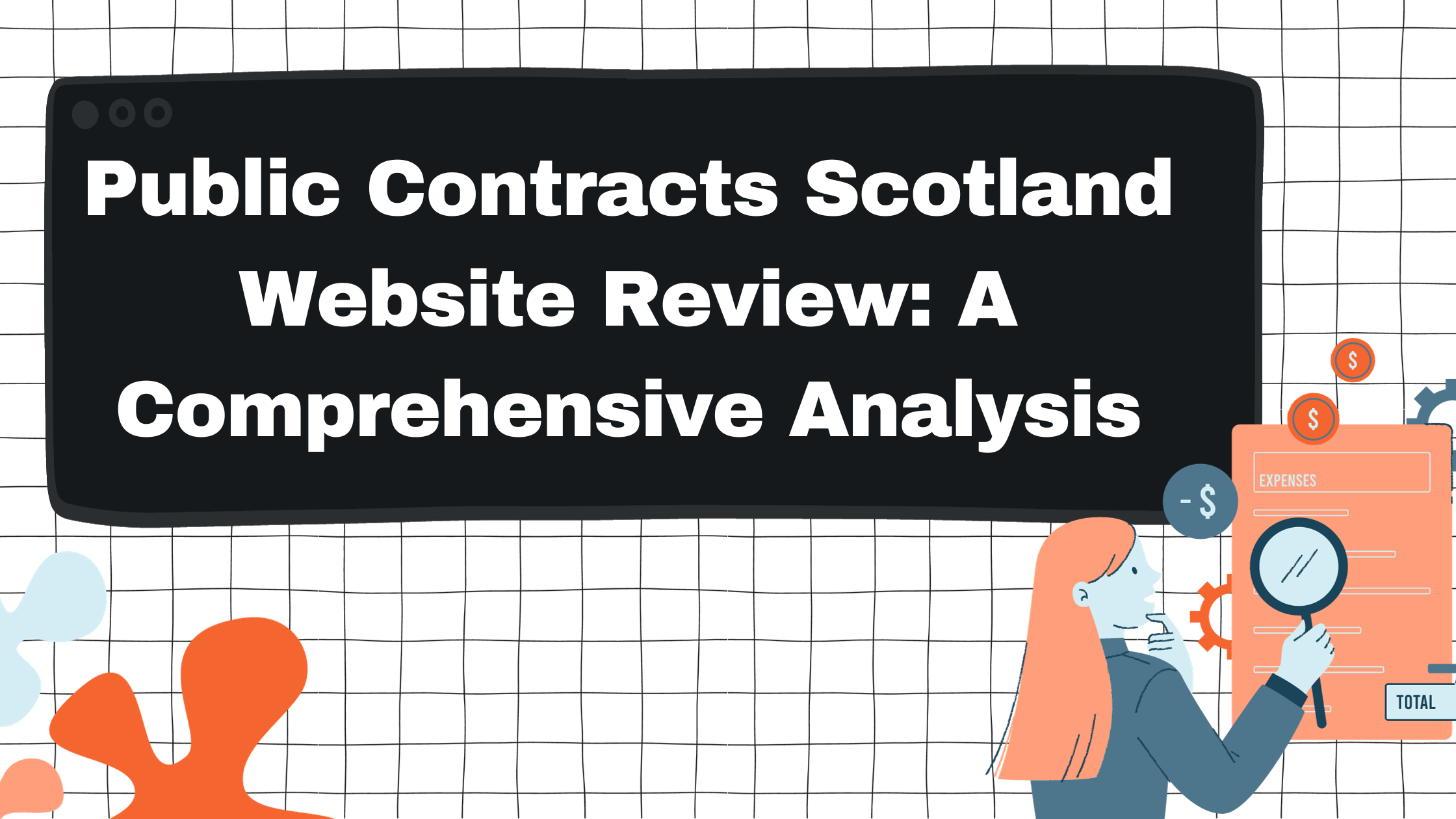Enhancing Proposal Success: Expert RFP and Proposal Writing Services for Businesses

Need Help with Your Bid?
Get in touch by filling out the form and one of our advisors will be in contact.
Contact UsWhy Should Companies Use AI for Bid Writing: Enhancing Accuracy and Efficiency
Artificial intelligence (AI) is transforming the landscape of numerous industries, and its impact on bid writing is no exception. The introduction of AI in bid writing procedures offers companies a competitive edge, allowing for the processing and analysis of vast amounts of data at speeds unattainable by human counterparts. Your company can leverage AI to enhance the precision and personalization of bids, making each proposal more compelling and targeted towards the client's needs. This integration leads to a significant increase in efficiency, enabling your team to focus on strategic elements rather than repetitive tasks.

With AI, bid writing becomes scalable and more manageable, especially important when dealing with a high volume of proposals or operating across different markets. The technology can prioritize tasks, suggest improvements, and even draft sections of bids, adjusting to the specific requirements of each request for proposal (RFP). As AI continues to evolve, it adapts and learns from each bid it helps to create, constantly refining the process and outcomes. Embracing AI in bid writing doesn't just streamline operations; it builds a foundation for a more robust, data-driven approach to bidding that can boost win rates and position your business as a forward-thinking leader.
Key Takeaways
- AI enhances the precision and personalization of bid writing, improving proposal quality.
- Adopting AI in bid writing improves scalability and efficiency, handling a higher volume of proposals.
- AI's continuous learning capability provides a foundation for data-driven bidding strategies.
Advantages of AI in Bid Writing
Incorporating AI into your bid writing processes can significantly boost your operation's overall efficiency and output quality. From harnessing the power of machine learning to the meticulous analysis of data, AI can elevate your bid writing to new levels of proficiency.
Enhancing Efficiency and Productivity
By integrating AI tools equipped with Natural Language Processing (NLP), your company can automate routine tasks within the bid writing process. These tools can quickly draft documents, organize data, and even ensure information is updated and relevant. You'll find that AI aids in:
- Automating repetitive tasks: Gathering information and populating standard forms to save you hours of manual labor.
- Reducing turnaround time: Ensuring bids are prepared and submitted faster, increasing the chances of securing contracts.
Improving Quality and Consistency
The consistency of your bids' quality is non-negotiable. Machine learning algorithms continually learn from past bids, improving over time to help you maintain a high standard. AI's capabilities lead to:
- Fewer errors: Proofreading and refining content, AI reduces the risk of human error.
- Consistent responses: Leveraging previous successful bids to keep the tone and quality uniform throughout your submissions.
Enabling Better Research and Insight Generation
AI can analyze substantial amounts of data, providing you with invaluable insights that might otherwise remain hidden. These insights help you understand and meet potential clients' needs more effectively. This deep analysis facilitates:
- Targeted research: Quickly sift through extensive databases to find the exact information you need.
- Advanced insight generation: Utilize AI's predictive capabilities to anticipate questions or requirements, giving you an edge in the bidding process.
By embracing AI in bid writing, you leverage technology to elevate your work's efficiency, quality, and research capabilities, directly impacting your success rate in winning bids.
AI Technologies in Bid Writing
In the competitive realm of bid writing, integrating Artificial Intelligence (AI) technologies can be a game-changer for your company. Utilizing cutting-edge algorithms and data analysis tools, AI can enhance your bid writing process by leveraging the capabilities of Natural Language Processing (NLP), Machine Learning (ML), and Generative AI.
Natural Language Processing Applications
Natural language processing (NLP) allows your systems to read, understand, and interpret human language from various documents and textual data sources. With NLP applications, you can automate the extraction of key information from RFPs (Request for Proposals), ensuring your bid responses address the criteria comprehensively. This technology enables you to rapidly scan through vast amounts of text, identifying essential themes and requirements that are crucial for crafting a winning proposal.
Machine Learning for Data Analysis
Machine learning, a subset of AI, employs algorithms to analyze historical bid data, identifying patterns and trends that can inform future bids. By harnessing machine learning for data analysis, you can predict the success rates of different bid strategies, adapt to changing market dynamics, and optimize your bid proposals based on empirical evidence. This process is invaluable for continuous improvement and making data-driven decisions.
Generative AI for Content Creation
Generative AI excels in creating high-quality content tailored to your bidding requirements. This form of AI for content generation can produce coherent and contextually relevant text, drafts, and even complete sections of your bid, saving you considerable time. By leveraging generative models, your team can focus on refining and personalizing the content to ensure that each bid captures the unique value proposition you offer, while also maintaining a high standard of writing.
Operational Considerations

Enhancing your bid management through the integration of AI offers you efficiency and security. Careful consideration must be given to how AI can streamline your bid processes and safeguard sensitive information.
Integration and Automation of Bid Processes
When you introduce AI into your bid management, you initiate a transformative shift in how projects are handled. AI integration means data from various stages of bidding are centralized, providing a unified platform that supports decision-making. Your ability to automate complex, time-consuming tasks such as reviewing compliance matrices and proposal tailoring is significantly enhanced. This not only expedites the bid preparation but also increases accuracy, leaving less room for human error.
- Advantages of automation:
- Efficiency: Shorten the cycle times of bid preparations.
- Accuracy: Minimize errors in compliance and proposal creation.
- Resource Allocation: Redirect focus to strategic tasks by automating routine activities.
Data Privacy and Security Measures
With AI, you can bolster data privacy and implement stringent security measures. The application of AI in bid writing necessitates handling confidential company and client information. It's imperative to deploy AI solutions that comply with data protection regulations and feature robust encryption methods. Ensuring confidentiality and security isn't just about protecting data; it's about maintaining your reputation and the trust of your clients.
- Security protocols to consider:
- Encryption: Safeguard data at rest and in transit with up-to-date encryption protocols.
- Access Control: Limit information access to authorized personnel only.
- Compliance: Regularly update compliance matrices to stay in line with industry regulations.
Human-AI Collaboration in Bid Writing
As you navigate the landscape of bid writing, understand that the most effective approach is a collaborative one, leveraging both human expertise and advanced AI tools. This partnership can lead to more efficient bid processes and elevated quality.
The Role of Human Expertise
Your human intelligence and touch are irreplaceable in bid writing. You, the bid writers and professionals, bring an understanding of nuances, industry-specific knowledge, and strategic insights. Human judgment and relationship-building skills ensure the proposal resonates with clients on a personal level, addressing their unique needs and concerns.
Augmenting Writers with AI Tools
AI tools amplify your capabilities, automating repetitive tasks and data analysis, which can lead to increased productivity and consistency in quality. They aid you by handling tedious tasks and analysing data, optimizing the time you spend on the creative and persuasive aspects of bid writing. By implementing AI-powered solutions, you can manage multiple bids more effectively, ensuring that every bid receives the attention it deserves.
Future of AI in Bidding and Procurement
As you look towards the future in the competitive tender landscape, AI is set to revolutionize procurement processes with greater sophistication and efficiency. The trends suggest a shift towards predictive analysis and deep learning, providing you with the tools to anticipate market changes and make informed decisions.
- Predictive Analysis: AI-driven tools allow you to forecast demand, manage risks, and identify potential cost savings, leading to smarter procurement strategies.
- Deep Learning: With deep learning capabilities, your data interpretation moves beyond surface-level patterns to uncover nuanced insights that could be missed by human analysis.
The healthcare sector, known for its complexity in procurement, stands to benefit significantly from AI's advancements. As machine learning algorithms become more proficient, they can manage vast quantities of data while adhering to regulatory compliance and optimizing supply chain management.
Trend Impact
- Enhanced decision-making
- Streamlined processes
- Cost efficiency
- Increased compliance
Prepare to embrace a future where your bidding and procurement activities are far more strategic and less manual. Leveraging AI not only positions you ahead of the curve but also equips you to handle the ever-increasing complexity in procurement with confidence and clarity.
Mitigating Risks in AI Adoption
When adopting AI for bid writing, you should be aware of its limitations and the importance of managing risks proactively to ensure ethical considerations are met. The oversight provided at this stage is paramount to harness AI's capabilities safely and within legal frameworks.
Understanding AI Limitations
AI systems have revolutionized bid writing by automating complex, labor-intensive processes. Despite their efficiency, it's crucial to recognize that AI tools operate within certain confines. Understanding AI's limitations helps you set realistic expectations about what AI can do and ensures that you're prepared to counter potential issues in performance or output quality.
- Intellectual property concerns: Ensure that the AI software does not inadvertently use or generate content that may infringe on intellectual property rights.
- Performance limits: Recognize that AI algorithms are as good as the data they are trained on, and unexpected inputs could cause inaccurate outputs.
Managing Risks and Ethical Considerations
Integrating AI into your bid writing process comes with the responsibility of managing risks and ethical considerations. Your obligation is to safeguard client data and uphold privacy while aligning AI operations with set standards.
- Data privacy: Prioritize technologies that protect your clients' sensitive information adhering to privacy laws such as GDPR.
Risk FactorMitigation StrategyData SecurityImplement robust encryption and access controls.Ethical MisstepsIncorporate policies that reflect your ethical stance on AI use.
- Safety and standards: Align AI use with safe practices and industry standards to prevent misuse or harm, whether intentional or accidental.
- Continuous oversight: Regularly review AI performance against key metrics to ensure compliance and rectify any deviations.
By addressing these factors thoughtfully, you're positioning your company to use AI in a way that not only enhances your bid writing capabilities but does so with a clear conscience and within the bounds of the law.
Frequently Asked Questions

In this section, you'll find detailed answers to common inquiries about the implementation and benefits of AI in the bid-writing process. This information is intended to provide you with a clear understanding of how AI can transform your company's approach to bidding.
What advantages does AI offer in streamlining the bid writing process for companies?
AI bid writing has revolutionized the industry by automating routine tasks and processing vast amounts of data swiftly. This results in a more efficient process where you can focus on strategy and creative aspects, leaving data management to intelligent algorithms.
How can AI enhance the quality and effectiveness of proposal writing?
AI improves proposal writing by ensuring consistency and precision. Tools can synthesize information to support key messages and align the proposal's tone with your company's brand, ultimately leading to higher-quality, more persuasive proposals.
In what ways can AI help improve the win-rate of business tenders?
The use of AI in bid preparation allows for bespoke responses tailored to each tender, leveraging insights and previously successful content. This strategic approach often results in an increased win-rate by delivering precisely what evaluators are seeking.
What is the role of AI in customizing and personalizing business bids and proposals?
AI can personalize bids by analyzing historical data and bidder preferences to craft tailor-made responses. As a result, your proposals feel more relevant and engaging to specific clients, showing that you understand their unique needs and challenges.
How does AI contribute to cost reduction in the bid and proposal creation phase for corporations?
AI reduces operational costs by decreasing the hours spent on manual tasks, from analyzing RFPs to the actual writing of proposals. This not only cuts down labor costs but also frees up your team to tackle more strategic projects.
What are the time-saving benefits for businesses that adopt AI in their bidding strategies?
Businesses that implement AI in their bid writing can experience significant time savings—the technology allows for rapid generation of first draft proposals, quicker response to RFPs, and reduces the time needed for edits and reviews, allowing your business to respond to more opportunities with greater speed and efficiency.
Ready to start your search?
Get in touch by filling out the form to the right and one of our advisors will curate a personalised selection for you.
Get in touchBlogs. Guides. Helpful advice.

Mastering Proposal and RFP Writing for Government and Public Sector Opportunities

Proposal and RFP Writing Services: Enhancing Public Sector Tender Outcomes

.svg)